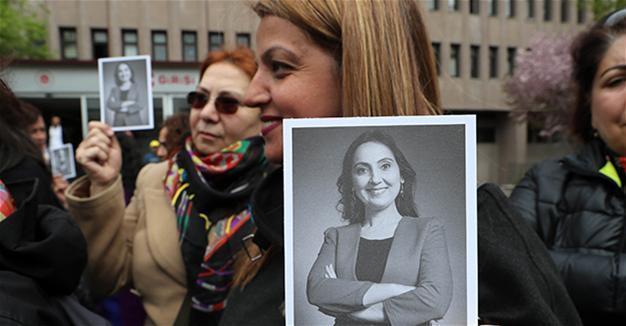HDP urges European court to act on arrested deputies in Turkey
STRASBOURG

AFP photo
A delegation from the Peoples’ Democratic Party (HDP), along with several European parliamentarians, gathered in Strasbourg in front of the European Court of Human Rights (ECHR) on May 16 to call on the court to act on the conditions of arrested HDP lawmakers.“For the last 194 days, six million voters’ will and who they elected are waiting for justice,” HDP spokesperson Osman Baydemir said, referring to the imprisonment of the lawmakers of the Kurdish issue-focused party, the third largest political party in Turkey in terms of votes received in the most recent general election.
“Internal justice has been exhausted. There is no way other than the ECHR. We’re shouting out to the ECHR: Justice that comes late is not justice. A decision should be taken urgently,” Baydemir added.
The HDP on Feb. 20 filed an application at the ECHR regarding the continued arrest of its co-leaders, Selahattin Demirtaş and Figen Yüksekdağ. The HDP committee stated in the application that there is no way other than to apply to the ECHR, as Turkey’s Constitutional Court is not carrying out any examination.
“For the last two years, all rights and freedoms in Turkey, which are under protection of European Convention on Human Rights, are under a heavy attack. One of the most concrete indicators of this is that HDP co-chairs and lawmakers are not in parliament,” Baydemir said on May 16, speaking on behalf of the HDP delegation.
“Today, we call on to the high court once again. We demand that our application reaches a decision urgently and injustice is averted. In Turkey, internal justice paths have been exhausted and blocked due to political oppression,” he added.
Some 10 lawmakers from the HDP, including its co-chairs Demirtaş and Yüksekdağ, were arrested on Nov. 4, 2016 and are currently in jail, facing hundreds of years inside for alleged links to the outlawed Kurdistan Workers’ Party (PKK).
















